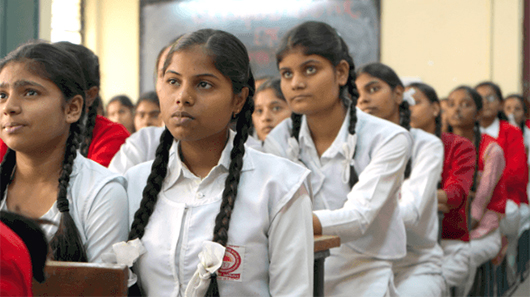
The National Education Policy 2020 (NEP 2020) aims to devise four National Curriculum Frameworks (NCFs), for which a comprehensive strategy has been worked out jointly by the Ministry of Education (MoE) and National Council of Educational Research and Training (NCERT). A mandate document was released recently to bring about a paradigm shift in education with focus on holistic development of children, emphasis on skilling, vital role of teachers, learning in mother tongue, cultural rootedness.
- National Curriculum Framework for Early Childhood Care and Education (NCFECCE)
- National Curriculum Framework for School Education (NCFSE)
- National Curriculum Framework for Teacher Education (NCFTE)
- National Curriculum Framework for Adult Education (NCFAE)
Background
The National Education Policy (NEP) is a comprehensive framework to guide the development of education in the country. As a policy of education, it not only guides the development of education but also provides directions for regulating and promoting education. The education policy covers education at all the stages including early childhood care and education, school education, higher education, teacher education and vocational education.The first National Policy on Education was formulated in 1968, the second was in 1986 modified in 1992 and the latest National Education Policy in India is NEP, 2020.
The National Education Policy 2020 is the first education policy of the 21st century in India and aims to address the many growing developmental imperatives of our country. NEP, 2020 was released on 29th July, 2020 in India. As per the policy the aim is to have an education system by 2040 that is second to none, with equitable access to the highest-quality education for all learners regardless of social or economic background.
The Policy proposes the revision and revamping of all aspects of the education structure, including its regulation and governance, to create a new system that is aligned with the aspirational goals of 21st century education, including SDG4, while building upon India’s traditions and value systems.
Strategy for Evolving NCFs
All states/UTs will first prepare their State Curriculum Frameworks (SCFs) passing through the process of district level consultations, mobile app survey and development of position papers by the State Focus Groups in 25 areas/themes identified as per the NEP, 2020 including ECCE, Teacher Education and Adult Education. These draft SCFs will provide inputs to the development of NCFs. States/UTs and Autonomous organisations working under MoE, all will attempt this process to provide inputs for the NCFs. Recommendations of NEP, 2020 will be kept in view during the whole process.
At the National level, NCERT will conduct a survey on MyGov and get feedback from diverse stakeholders on the issues related to curriculum implementation. NCERT will also conduct 2-3 district level consultations in each of the States/UTs for collecting feedback from the grassroot level. Analysing inputs received from the district level consultations, States and national level survey on MyGov, National Focus Groups will prepare 25 position papers in the identified areas.
Drawing insights from these position papers and draft SCFs, four NCFs will be prepared. The whole process will be done using paperless approach including consultations and preparation of reports at all levels using Tech platform specially designed for the purpose by NCERT and NIC, MoE. On this platform all the States/UTs will be provided with e-templates for the consultations, surveys, position papers, etc., and will continuously be supported by the nodal officers nominated at the central level. States will also nominate their nodal officers for smooth and speedy flow of this process. Draft NCFs will be translated in 22 languages given in VIII schedule of the Constitution and shared with the States/UTs for their comments. Taking care of their comments, the NCFs will be given final shape and will be placed before Ministry of Education for the approval processes. After approval, the documents will be disseminated to States/UTs for revising the draft SCFs and also for the implementation of NCFs.
For details : Visit
Related Links



.png)


